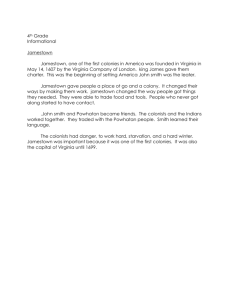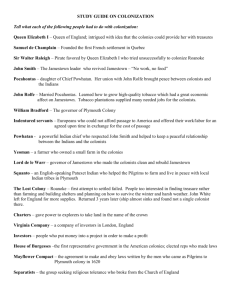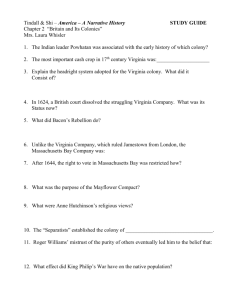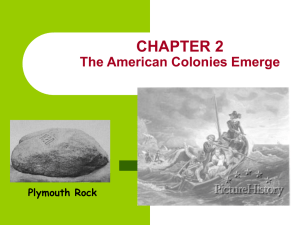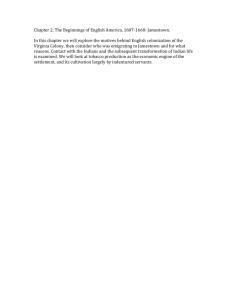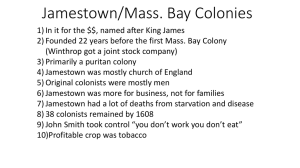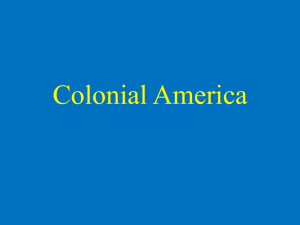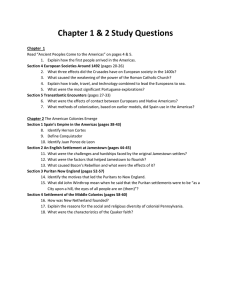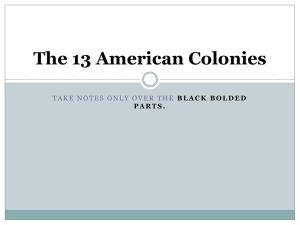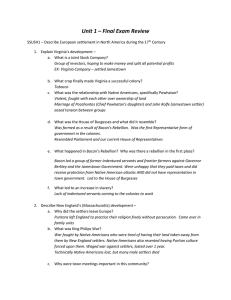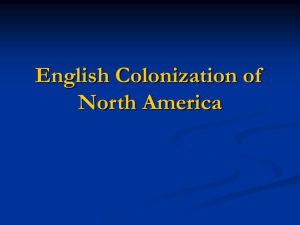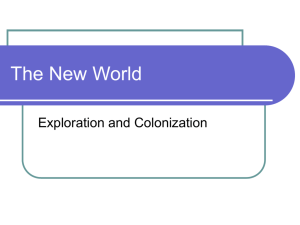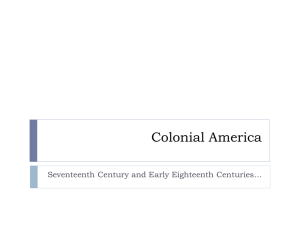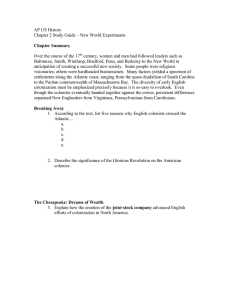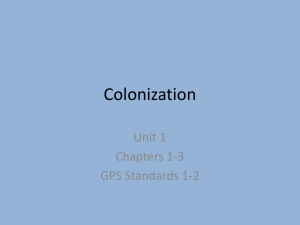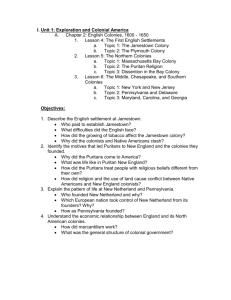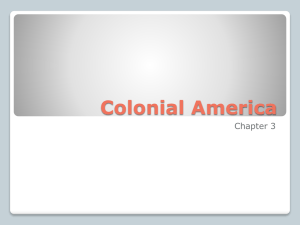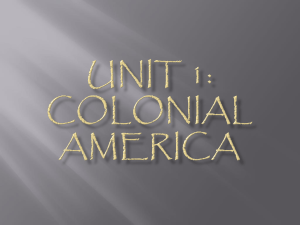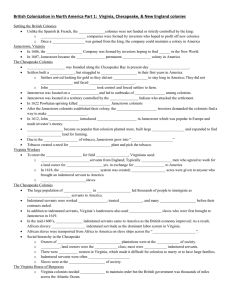Unit 1 Notes 13 colonies
advertisement
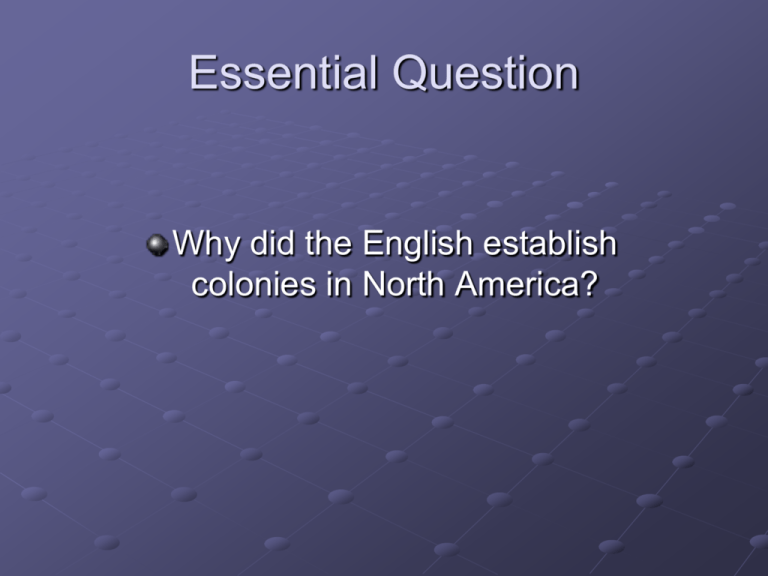
Essential Question Why did the English establish colonies in North America? English Colonies in America Southern Colonies Sir Walter Raleigh Colony chartered by Queen Elizabeth Sailed to the Outer Banks, NC Landed on the island of Roanoke Jamestown 1606 – charter granted for the Virginia Company Arrived in Virginia in 1607, established the settlement of Jamestown Problems at Jamestown Colonists were townspeople No farming, livestock experience Upper class refused to work, hoped to get rich Only 38 of the colonists made it through the first winter Quote, Jamestown Survivor “When our people were fed out of the common store and labored jointly . . . Glad was the man that could slip from his labor . . . Presuming that howsoever the harvest prospered, the general store must maintain them, by which means we reaped not so much corn for the labors of 30 men, as three men have done for themselves.” John Smith Emerged as Jamestown’s leader Began trading with local Indians, the Powhatan Confederacy Helped colonists make it through the winter Tobacco John Rolfe brought seeds of tobacco from the Caribbean Became the primary cash crop of Virginia Virginia House of Burgesses First representative government for the colonists Right to elect an assembly and make own laws Virginia River Plantations, 1640 Georgia James Oglethorpe – asked the king for a colony for the poor in debtor’s prison buffer between the Carolinas and Spanish Florida Savannah New England Settlements Puritans Desired to purify the Anglican Church Faced persecution by King James I Massachusetts Royal charter in 1629 granted to the Massachusetts Bay company John Winthrop – led a group to Massachusetts in 1630 due to increased Puritan persecution in England The Mayflower Set sail September 1620 – 102 passengers Storm blew the ship off course and it arrived off the coast of Cape Cod Decided to land at Plymouth Quote, John Winthrop “The Lord will make our name a praise and glory, so that men shall say of succeeding plantations: ‘The Lord make it like that of New England.’ For we must consider that we shall be like a City upon a Hill; the eyes of all people are on us.” Religious Dissent Puritans only allowed male Puritan church members to vote and participate in the governing of Mass. All residents were also forced to attend church services- regardless of church affiliation This angered some church members These members left and founded two other colonies Founding of Rhode Island Roger Williams and Anne Hutchinson challenged leadership of Massachusetts Williams believed in religious tolerance Hutchinson believed that women had a place in church leadership Rhode Island They were forced to leave Mass and settle elsewhere Established colony for religious reasons Connecticut 1636 – Thomas Hooker moved his congregation from Mass. to the Connecticut River Valley Wanted all men, not Puritan church members to be able to vote The Middle Colonies New Netherland/New York Originally was called New Netherland 1609– Dutch sent explorer Henry Hudson He discovered the Hudson River Valley Economy based on trade New Amsterdam Major settlement of New Amsterdam on Manhattan Island Other immigrants arrived as well New York 1664 – King Charles II decided to seize New Netherland Wanted it for trade income Fur trade, wheat, rye Pennsylvania King Charles II granted William Penn land to pay off a debt Penn was a Quaker, part of a persecuted religious group Penn desired political and religious freedom Legislative assembly elected by voters Called his colony “The Holy Experiment” Pennsylvania Pennsylvania Quaker settlers Germans Scots-Irish Lower counties purchased by Penn became Delaware
